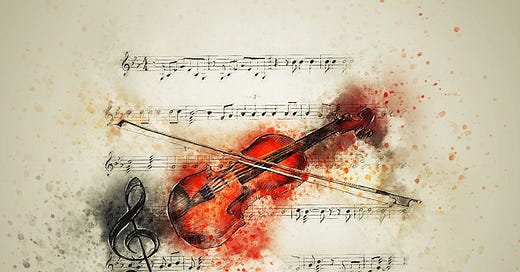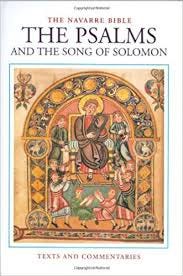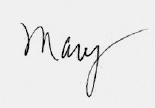On my CD now Rebecca Young is playing her violin in “The Trout’s” finale with exuberance. The hairs are probably flying into the air still attached to her bow but distracting a live audience. I’m thankful for the control a recording provides: the lack of the visual.
I don’t go often to live string group performances for this reason.
The Emerson String Quartet that day was a mistake. I took the chance after Lena died to hear the Schubert Cello Quintet live—two cellos—in C Major. I gave in to its beauty, to the violist’s and, in the case of the Schubert, the guest cellist’s exuberant bows. I was in the clutches of the music and her hold: Lena whom I’ve lost. I was out of control.
Lena and I met at the Library of Congress.
It was lunch time and I often go walking at that time if the work slacks or even if it doesn’t. When it doesn’t, I don’t tell anyone where I’m going. I simply walk out. I often walk toward the Mall but rarely go in anywhere. I like the destination because its vista is accountable—not office buildings. Its vista gives architectural beauty, history, memory of things learned, in museums, government buildings, the library, monuments and cherry trees around the tidal basin, lovely to me most when not in bloom because I like the angled bark of the trunks, the twisted heavy limbs that remain close to the ground. They seem to reach toward one another as if they were pleached, as if set on frames and made to grow into an arbor.
And that’s how we were, pleached.
Or were we? This is the question I must answer.
On the day Lena and I met, it had begun to rain. I was in front of the library and went in for cover. She was leaving, had a black zippered brief case under her arm and was trying to open her umbrella in the awkward pose of someone doing two things at once. I walked towards her and reached out to hold the door for her when her umbrella popped open and smacked me in the face. She was embarrassed and sorry and we were both then wet.
She was thirty-five when we met. I courted her for three years. On the day I asked her to marry me, I invited her to my apartment in Old Town. I had chosen this small enclave of Virginia because it’s near the city, close enough for me to be able to drive quickly to work or to take the subway when it rained. The drivers in DC and its surrounds know nothing about driving the way I learned to drive in Iowa: with force and purpose.
I had little furniture, had placed my baby grand as the centerpiece of my living area. I’d gotten the grand cheap—the sounding board is cracked. I learned this later. The expense of the right piano precludes my replacing it, or so I say to myself.
On the day I proposed, I called her, told her I had a gift for her. She should come over from her place, her apartment in Dupont Circle, a cramped, mad-scrabble of books, books everywhere, all over the floor and in shelves, but not ordered. How she found anything was a mystery to me like finding her now. She came and I played first the Schubert in G flat and then without words, with instead the simple silence that follows the end of a piece, the laying of the hands in my lap briefly, I began Beethoven’s “Pathétique.”
She wept. She wept through both pieces and said, as was her way, little. Actually nothing, I now recall. She simply wept as if remembering a great loss. And then I took her in my arms and asked her to marry me. She said, “Robert, I’m barren.”
I didn’t understand, thought it was one of her metaphors.
She often spoke in metaphors that intrigued me: When the mind’s free, the body’s delicate. That was the sort of thing she’d say and then add, Lear, you know. But I didn’t know. She was my literature, my storehouse of narratives.
I said, “What do you mean?”
“Do you want children?” She reached for her purse. I thought she might leave. Instead, she emptied her purse onto the floor, looking for a tissue. A notebook with Post-It notes all over it for, as I already knew, deposits or withdrawals that would need to be tallied at some point in her checkbook that she kept at home, a lipstick, a pouch of some sort, her wallet with the money squished in the disorder of ones with twenties or fives and a slim book, The Song of Songs.
She was often dropping things. She was clumsy, disorganized with a child-like charm. She was thin as a reed. She was a woman who carried the music of the Bible in her purse.
I scrambled for the tissue on the floor to dry her tears. With that awkward move, I knew I was her answer.
I was forty and long past wanting the encumbrance of children, thought I’d never marry until I met her. I said, “I want you. You and me. We’ll be enough. Why would I want any more than you? You with your umbrellas popping, your books, your purse and all that stuff that falls out.”
And so we married.
But I was like a cold burn.
In Whiting, when I was a child, the house across the street blew up in a silent explosion while I slept. Bake, who lived there with his wife and children, had gone down to the basement before five in the morning because the house was cold. Our guess is he lit a match to light the boiler and the air exploded around him, throwing him onto the floor with a head injury that would kill him while his wife and children ran from the house before its walls fell in on themselves. The firemen came to put out a fire that hadn’t occurred and I woke to the single siren of the town’s one fire truck. This explosion that made no sound any of us heard—who knows what Bake heard before he fell?—was a cold burn, how I think of it.
I’ve turned the CD player off; shut down Emanuel Ax with his force, deprived myself of the strings, of the sweet: Rebecca Young’s viola, Yo Yo Ma’s cello, Edgar Meyer’s bass.
I open the score of Stravinsky’s “The Firebird,” let the horns dominate the strings in the movement “The Infernal Dance Of King Katscheï,” recall the siren that woke me that morning when I was a child and think how Lena waited for me. She hoped I’d break through and come to her, burst on her with desire from joy, from playing the piano, where she saw that could happen.
She must have believed that’s what she got from Isaac. Isaac, her lover.
I don’t know what he felt for her though I try—he remains difficult for me. But I’ve begun to know what she felt for him because I understand what she couldn’t get from me.
I’ve hated him, tried to imagine that I was the cool center between them—the space that kept them apart.
I’ve tried to hate her.
I imagine that Isaac and Lena said to each other, each in different words, How does one have an affair? and then answered the question with more questions. They remind me of the pangrammatist who spends his time creating sentences that contain every letter of the alphabet: John P. Brady gave me a black walnut box of quite a small size (48 letters). This is a kind of puzzle Lena enjoyed. She would have posed this question for Isaac: Why can’t you give me the ax or the prybar to break the frozen sea we’re quite doomed eventually and in all justice to become (111 letters)?
She should have asked this question of me, more simply, with less word play—and anyway she’s not very good at the game; the key is to use as few letters as possible.
She should have said and not bothered with the puzzle, Don’t you see I’m trying to edge open a door closing between us?
Would Isaac have tolerated the wordy pangram that she would’ve explained, including how she’d failed at the game? I would have swiftly come up with a shorter version, compelled to compete with her, thinking it in good humor: Vexed Lena asks the lazy frogman, who’s quite stuck, to jump or be jumped (56 letters).
I imagine that after her attempt at the pangram, she was direct, told Isaac, “He’s a smart man. Eventually, he’ll know.”
And that Isaac replied, “He’ll never know.”
“Why do you say that?” she’d have asked.
“Because if he were that smart, how could he have ever let this happen?”
That is the question I must answer.
I admit I have moments as I write their story and mine when I’ve wanted Lena and Isaac to pay for what they did to me—now that I know they were lovers.
If I’d seen them on the street, I’d have known because they would have done the sorts of things that reveal: They would have passed between them a bottle of water, their hips would touch, as if by accident, when they walked; they wouldn’t touch with their hands the way safe lovers do, but an observant eye could catch both the intimacy and the caution—and know.
It was when she was dying that I knew. It was the way he touched her head before he left her bedside. What I thought was an obligatory visit from a colleague changed with one gesture.
But, by then, all I hoped was that he would be the hero who would save her.
When I do put a CD in my player, I play chamber music or quintets or symphonies. I don’t want the solo piano in my speaker though I own many recordings of particularly Rubenstein and Horowitz. I favor Schubert’s Piano Quintet in A Major, D667, the “Trout” with Emanuel Ax on piano, Yo-Yo Ma on cello, Pamela Frank on violin, Edgar Meyer on bass, and Rebecca Young on violin. I mention this because it is the strings that dominate. They do and they must for me—I turn the volume down when Emanuel Ax begins to take over; he is in control of the pacing—while my piano lies silent, the piano that I had seduced her with, that I tried before she died to play again, that I failed with.
When the strings come in “The Trout,” I raise the volume and think of us like the bow of a stringed instrument. When the violin, viola, or cello are played exuberantly, in my view without full control, the bow’s horsehair fly, splaying off.
I was the curved wood that held Lena; she, the bowhair. I was the rosin that smoothed her edges, that made our instrument sing, brought voice to her disorder, sound to her silence. She was often silent. The camber of the bow, the bent wood when well-made, is shaped from pernambuco, a strong Brazilian wood and its strength holds the fragile hairs. A good violinist must maintain his bow. I was the musician who knew how to tighten the bowhair with the right tension on the screw before playing, and then play her strings with the right amount of pressure, my hand on the frog, the flat metal where the violinist guides the bow. I was the violinist. I could keep the bowhair, Lena my violin, from splaying.
When I saw the Emerson String Quartet play, the violist played with excessive excitement, not enough control, his bow splaying so much that I was distracted by the flying hairs, as if I were at a July fourth celebration with shots of light, of blond hairs flying in the air in the face of the music. He played well and, whoever he is, he’s known for his expertise, but didn’t he know how distracting the splaying of the bowhairs is to the watcher who is trying to listen?△
Love,








Mary, I love to hear your voice reading your words. Thanks for the beautiful chapter.
I've fallen for you all over again. I was out of touch for a while, but I'm back! And so enjoying the beginning of this. And your reading of it is so soothing. Love it!